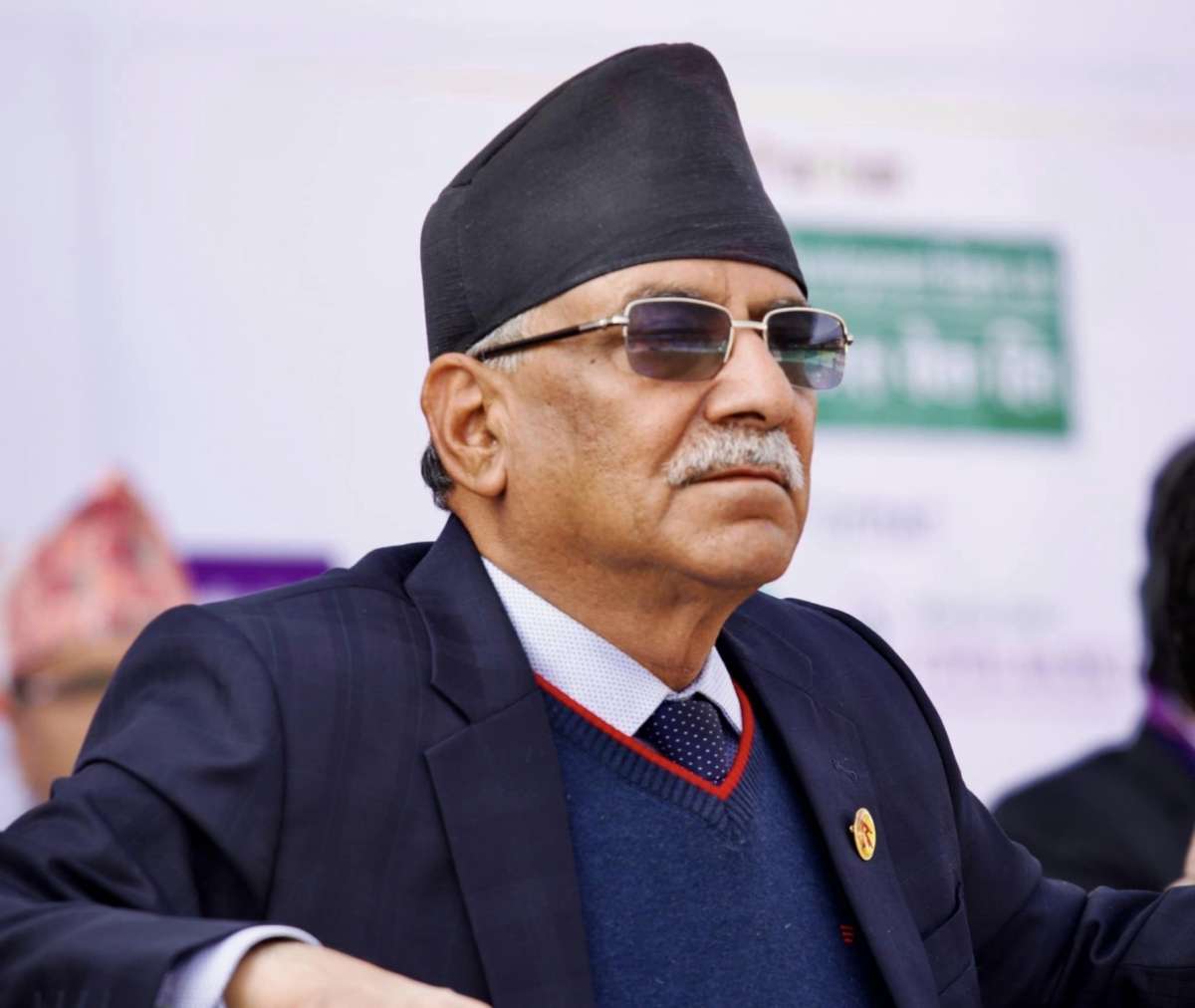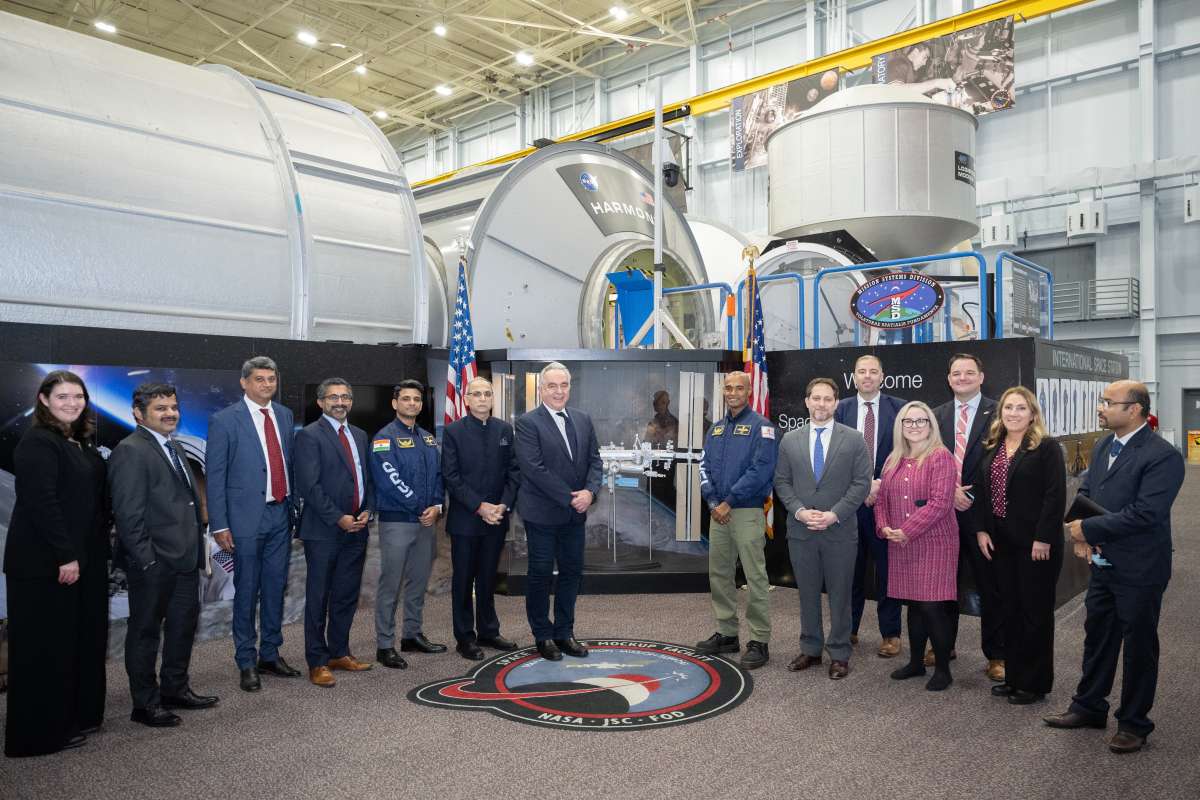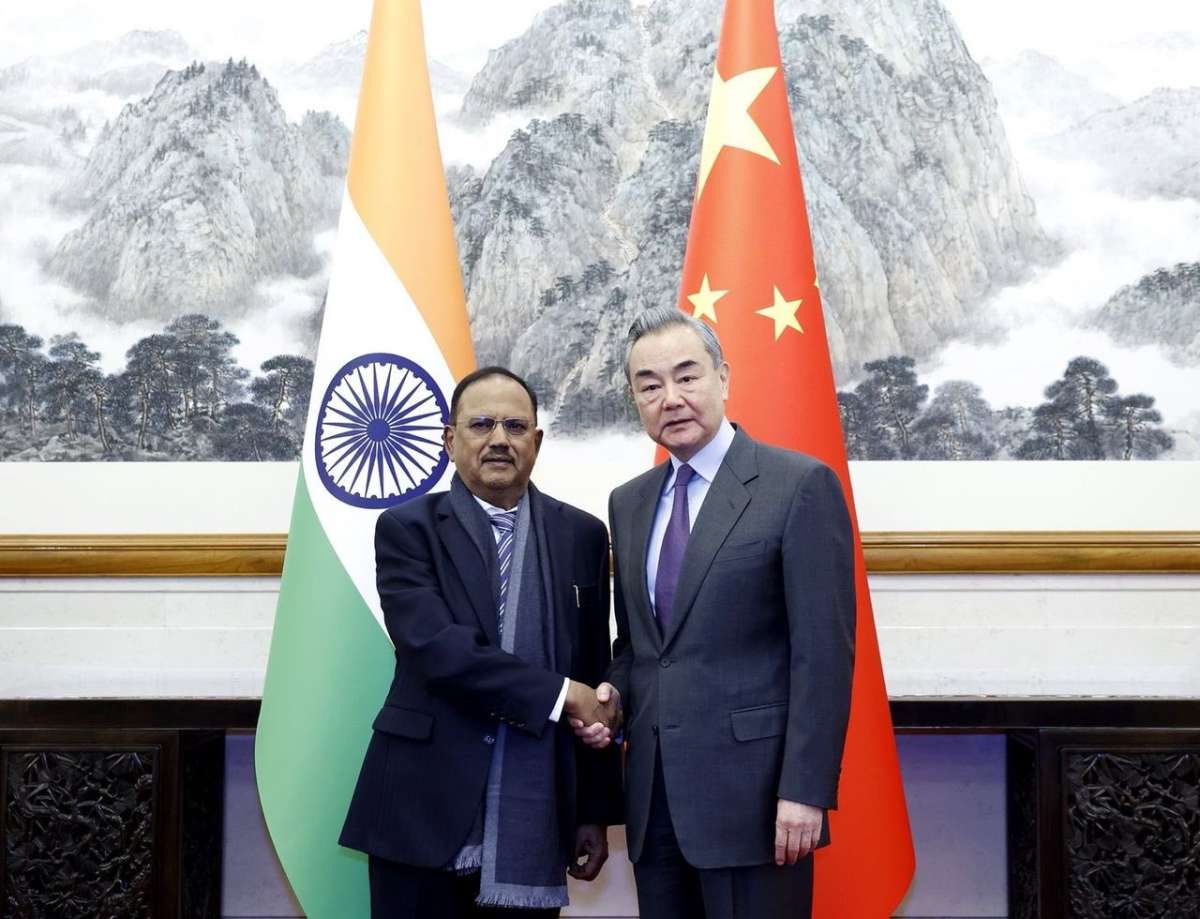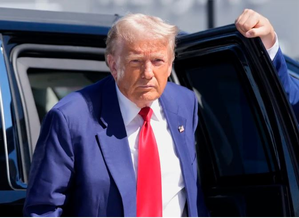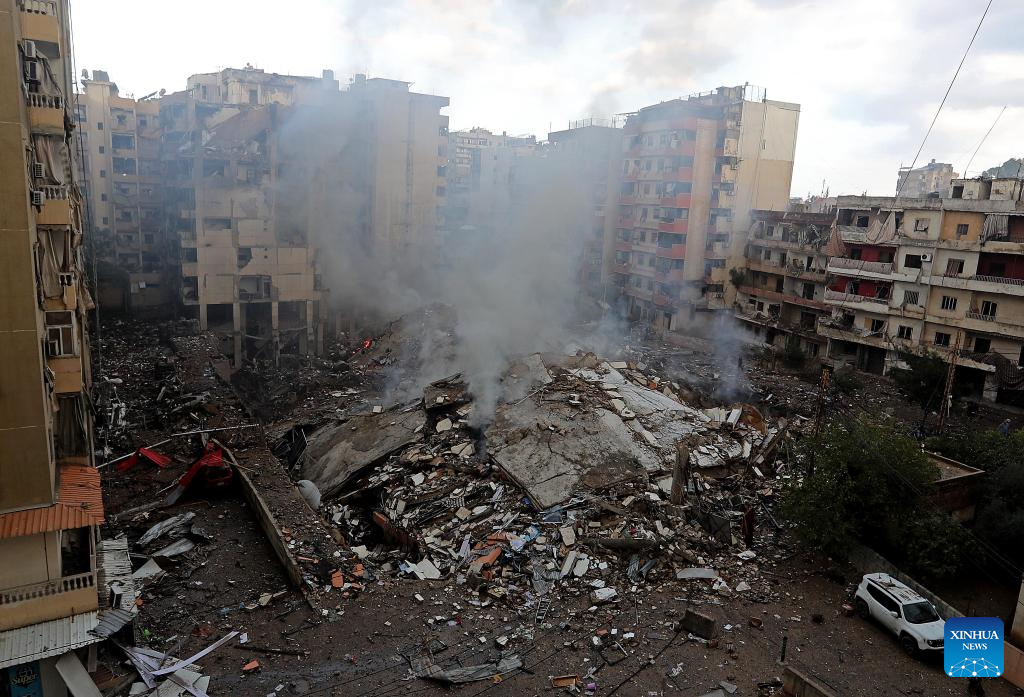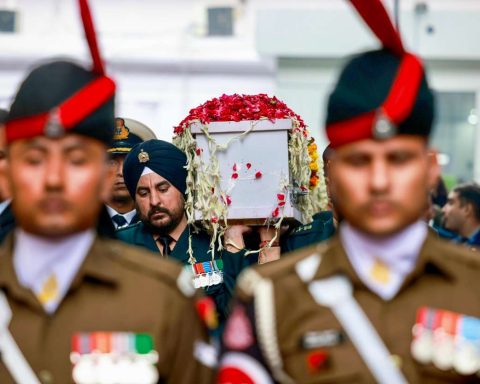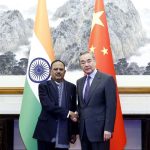Changes in the world’s political map are happening because of things like Russia fighting Ukraine and China showing a map that causes problems in Asia…reports Asian Lite News
With the evolving geopolitics, Prime Minister Pushpa Kamal Dahal’s current visit differs significantly from the traditional ones.
In just a few weeks since taking office, the customary pattern of Prime Ministers visiting the South and then the North has been disrupted. This time, Prime Minister Dahal has orchestrated a diplomatic meeting with the world’s two most influential presidents simultaneously. Immediately after having dinner with US President Joe Biden, he attended a dinner with Chinese President Xi Jinping on Saturday.
The global geopolitical landscape is shifting, driven by factors such as Russia’s conflict with Ukraine and China’s release of a disputed border map, creating turbulence among Asian nations.
The controversy escalated as China referred to its map as the ‘popular map,’ claiming over 90,000 square kilometers of land in Arunachal Pradesh, India, and more than 30,000 square kilometers of disputed territory in Aksai China as part of its territory. The map also depicts the South China Sea and Taiwan as integral to China.
Furthermore, a recent summit in Jakarta addressed the escalating tensions between the US and China, along with regional disputes in the South China Sea. Many heads of state openly criticized China’s behavior.
In addition, the G-20 summit held in India produced a manifesto covering various topics, including environmental progress, gender equality, and counterterrorism. This has bolstered India’s leadership and economic development.
Conversely, ASEAN and China have been engaged in two decades of negotiations for a legally binding code of conduct in the South China Sea, which remains unimplemented despite an agreement in July to reach a resolution within three years.
Prime Minister Dahal reached on a week-long visit to China on Saturday. The Prime Minister’s Secretariat revealed discussions on various matters of bilateral interest with Prachanda and President Xi. Both leaders expressed commitment to enhancing cooperation based on regional stability, mutual interests, and sensitivity.
China conveyed its readiness to support Nepal’s economic and social development through the Belt and Road Initiative (BRI). Prime Minister Dahal reaffirmed his commitment to China’s policy and hopes that the BRI can bring significant changes to Nepal’s infrastructure development.
However, there is ongoing debate and disagreement about the Millennium Challenge Corporation (MCC) from the United States and the BRI from China. Some intellectuals in Kathmandu view both as interfering with Nepal’s nationalism.
There is a lively debate, with some asserting that the BRI serves Chinese military interests and is a counterproductive US response. Some openly oppose the MCC, considering it as the entry of the American military under the guise of development.
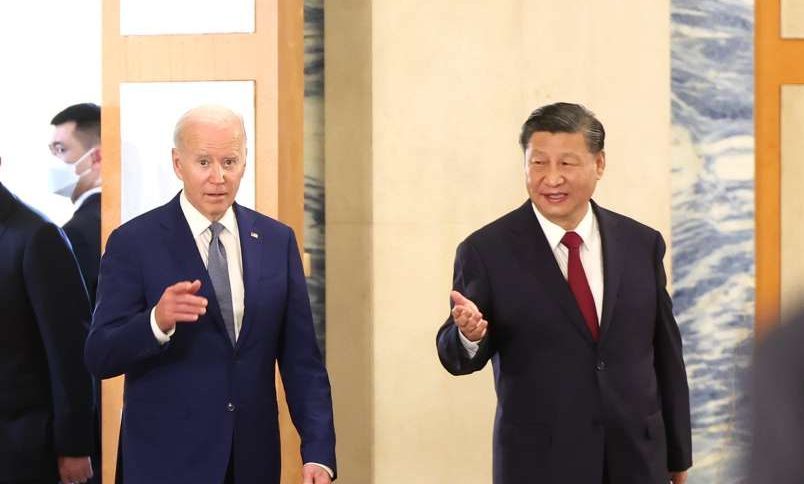
In 2017, Nepal became a signatory of the BRI, and China has become Nepal’s largest creditor. China ranks as Kathmandu’s second-largest trading partner after New Delhi and is the largest source of foreign direct investment.
China’s diplomatic influence in Nepal, particularly through the BRI, has grown unexpectedly, especially during the economic blockade from New Delhi. China used this opportunity to strengthen ties through the 2016 Cross-Border Transit Treaty, providing Nepal, a landlocked country, with trade opportunities with third countries.
However, the economic viability of these arrangements remains a subject of debate. Nepalese leaders are concerned about facing a situation similar to Sri Lanka and Pakistan, where BRI projects have led to economic crises and heavy debt burdens.
China’s push to implement the BRI in Nepal raises questions about the potential economic consequences and its impact on Nepal’s sovereignty.
Chinese Pressure on Prime Minister Dahal
Less than a day after Prime Minister Dahal assumed office, a Chinese delegation arrived in Nepal. Following a meeting between KP Sharma Oli and Dahal, a 6-member technical team dispatched to Kathmandu initiated a feasibility study for railway construction. An agreement was reached wherein China would bear the financial expenses for this endeavor.
However, both countries have yet to determine the mechanism for providing financial support for the railway construction project.
Foreign Minister NP Saud has repeatedly stated that project implementation under the Belt and Road Initiative (BRI) is still under consideration, and not a single project has been implemented thus far.
In 2016, the Pokhara Airport project received a loan of 215 million US dollars from the Exim Bank of China. However, since Dahal assumed the position of Prime Minister, China has been asserting that Pokhara is part of the BRI initiative.
Prudent Nepal, Resolute China
Nepal has been consistently requesting that the Chinese proposals for Belt and Road Initiative (BRI) projects be subject to open and equitable competitive bidding processes. Experts argue that such an approach could help counter any potentially unfavorable intentions from Beijing and mitigate its assertive presence in the region under the guise of the BRI.
To navigate a significant obstacle posed by China in project execution, Nepal has sought greater transparency concerning the financial support arrangements. Nevertheless, China appears to remain unresponsive to these requests.
China’s Attempt to Influence Nepal Against India
After the formation of a new government in Nepal, China has significantly increased its involvement in Kathmandu’s political landscape.
Foreign Minister Saud has been clarifying Nepal’s foreign policy and expressing the intention to strengthen cordial relations with its neighboring countries. According to Saud, the goal is to maintain balanced relations with friendly nations that have experienced strains in the past.
The question now arises: Can Beijing, under the leadership of Prime Minister Dahal, successfully implement its agenda in Nepal? Will Kathmandu be able to sustain a balanced relationship with its two important and friendly neighbors following the Prime Minister’s visit to China? Only time will tell.
Caught in the Commission’s Web: The Debt Trap
Chinese companies are eagerly investing in infrastructure projects in regions where other donor agencies hesitate to commit substantial funds. This global trend is underscored by China’s robust investment practices. However, a concerning pattern emerges as these investments, initially presented as loans, begin to ensnare recipient countries in a debt trap.
China’s Belt and Road Initiative (BRI) strategy has been implemented in Nepal, notably with the Pokhara International Airport. China now asserts that the investment, which was offered at a mere 2 percent annual interest, has morphed into a full-fledged Belt and Road Initiative project.
The financial situation of Pokhara International Airport can be aptly described as “insufficient income, excessive expenditure.” Given the current state of air traffic and international air services, it appears unlikely that this investment will yield significant returns in the foreseeable future.
Regrettably, this economic predicament echoes in Sri Lanka, a neighboring country that has also grappled with the consequences of heavy Chinese investment, leading to a severe economic crisis.
(The article first appeared in EPardafas)
